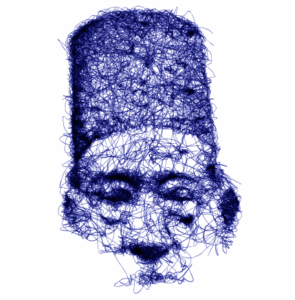Biography de Hafiz Ibrahim, poet (1872-1932)

Hafiz Ibrahim, nicknamed “the Poet of the Nile” (شاعر النيل), is one of the greatest Egyptian and Arab poets of the 20th century. Born in Dairout, Egypt, he lost his parents at a young age and studied law in Cairo before joining the army. His poetic talent and patriotic engagement made him a major figure in modern Arabic literature. His poetry, marked by a vibrant and accessible style, expresses the national, social, and cultural aspirations of his time. Among his most famous works is Mṣr tatḥaddath ʿan nafsihā (مصر تتحدث عن نفسها), in which Egypt, personified, celebrates its history and calls for a glorious future. He champions Arab heritage, exalts national pride, and gives voice to the oppressed. His work remains a profound source of inspiration for Arab generations.
Biographie de Hafiz Ibrahim, poète (1872-1932)
باللهجة المصرية: حافظ إبراهيم، المعروف بلقب “شاعر النيل” (شاعر النيل)، يُعتبر واحدًا من أعظم شعراء مصر والعالم العربي في القرن العشرين. وُلِد في ديروط بمصر، وفقد والديه في سن صغيرة، ثم درس القانون في القاهرة قبل أن ينضم إلى الجيش. موهبته الشعرية والتزامه الوطني جعلته شخصية بارزة في الأدب العربي الحديث. شِعره يتميّز بأسلوب حيوي وسهل الفهم، ويُعبّر عن الطموحات الوطنية والاجتماعية والثقافية لعصره. من أشهر أعماله قصيدة “مصر تتحدث عن نفسها” (مصر تتحدث عن نفسها)، التي تتجسد فيها مصر ككيان يتحدث عن تاريخه العظيم ويدعو لمستقبل مشرق. دافع عن التراث العربي، وأعلى شأن الفخر الوطني، وأعطى صوتًا للمظلومين. لا تزال أعماله مصدر إلهام عميق للأجيال العربية حتى اليوم.
The builders of the pyramids, in times long past, silenced every supposed rival.
كَفَوني الكَلامَ عِندَ التَحَدّي وَبُناةُ الأَهرامِ في سالِفِ الدَهر
A poem-chair
“I adopted the chair, this familiar object, a few decades ago, at a time when I wanted to create art on a human scale in public spaces, while everywhere else people opted for the monumental: it is an object shaped like the body and serves the body. It is difficult to feel exclusive ownership of an object so universally shareable. It is mine when I occupy it, but if I leave it, someone else can claim it as their chair.” Michel Goulet, artist-sculptor
The project Prendre position
Prendre position is a sculpture-installation project of 47 chair-poems to mark the 100th anniversary of the Cité internationale universitaire de Paris. They were installed in a flowered meadow created especially for the occasion by the campus estate service.
This artistic installation was conceived by the Quebecois artist-sculptor Michel Goulet, in collaboration with François Massut, founding director of the collective Poésie is not dead.
Each house on the campus is represented by a chair, thanks to a donation from the Maison des étudiants canadiens and the support of the Labrenne group. Each of the 47 chairs is a unique work.
History and architecture of the house
The project for an Egyptian Pavilion at the Cité Internationale Universitaire de Paris is not new. The first connections between the Cité Internationale and Egypt date back to the 1930s. In 1951, a house project even took shape in the form of a pyramid, but it was not until 2017 that the project was formalized through a commitment agreement. Construction of the house began in 2021.